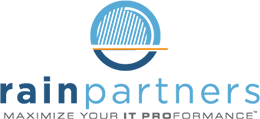On IT Governance and Personal Mission
 “What do I want most from my career?”
“What do I want most from my career?”
A common question among IT professionals.
And one that isn’t always so easy to answer.
I realized this on a recent client trip.
As a consultant, there are many paths I can follow to help my clients. They have many different needs, and each of those needs leads down a different valuable path. One morning on this particular client trip, I struggled thinking about whether or not I wanted to build a significant service line offering around IT governance.
On the one hand, I recognized IT governance is an important topic that has reached a level of maturity justifying a deep level of focused attention.
On the other hand, there was part of me that just couldn’t get excited about it.
Mulling this over in my hotel, I got up and crossed the street to my favorite café, hoping some good coffee would clear my head.
At the counter worked a barista I recognized. I’d spoken to him once or twice before, and we picked up the conversation where we left off—about how he held significant career training in animal therapy for kids, but here he was working as a barista because he needed to pay the bills.
Very quickly I found myself coaching him about following his heart.
After some deep conversation, I had to leave to take a phone call with a new colleague of mine. Very quickly this conversation also evolved into a meaningful coaching session where we discussed how she could actualize herself and really fulfill the ideas she had for her career.
In a passing remark, I told her: “It’s funny, I find myself in conversations with people all the time about reaching their dreams and fulfilling their personal visions. In fact, I had one this morning with some guy at the coffee shop.”
My “Aha!” Moment
After saying these words I felt an electric shock run through me, and in my mind I saw at least fifteen conversations I shared in the last month with many different people in many different contexts—mostly professionally in IT but also personally—where time and again I ended up coaching around self actualization.
Then I thought about the core of my book, and how it is all about providing answers to readers looking to figure out what they really want out of life and how they can reach those targets.
Realizing this, I stopped for a moment and thought: “Oh my god! That’s actually my thing. All the strategy, all the org, is just the fuel for this greater mission of helping out professionals who want to feel they mean something via their work.”
That moment of personal awareness felt truthful… but it also made me say: “OK, then what am I doing straying too far from that? What does governance have to do with helping people find that meaning in their job?”
The answer?
A little, but not a lot.
Governance and all the other topics we talk about in IT—such as aligning with the business, communicating effectively, getting a seat at the table—are important. They are legitimate endeavors unto themselves, and to a certain degree we need to talk about them because they compose the nuts and bolts of what we do as IT leaders and professionals.
But they don’t speak to the core topics my clients and I truly care about, namely leadership development, personal planning, organizational development, and every other piece of professional growth and satisfaction. The highly technical elements of the IT work we do simply serve as wrappers around these topics—avenues through which we can explore and develop real questions and answers about the meaning of the work we do.
That is my professional meaning…
What’s yours?
To help you develop clarity around the meaning you desire from your career, and to help stimulate discussion surrounding the topic, we created a list of the most common items we’ve heard cited by CIOs and IT professionals when answering the question “What do you most want from your professional career.”
Take a moment to review the list and cast your vote for your top three choices. We’ll publish the results soon so you can get a perspective on not only what matters most to you in your professional career, but also how your unique values compare to the broader IT community.


